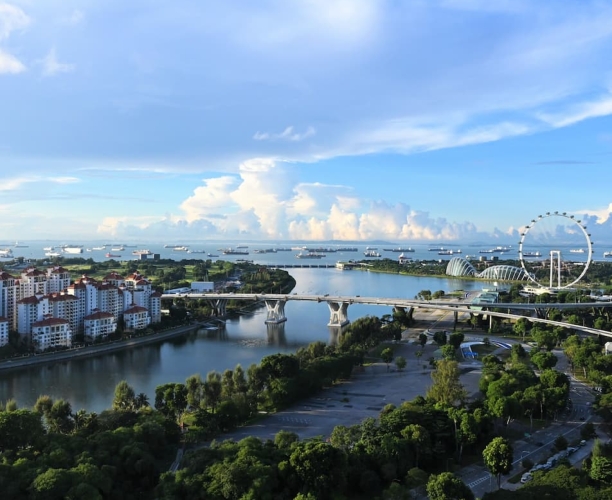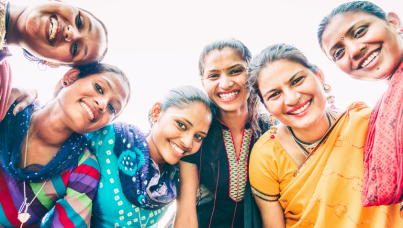

COP30: Indians and Asians Expect It to Be Effective, While Global Citizens View It as Symbolic
The latest Ipsos Global Advisor Survey titled “Attitudes to COP30 – Public Perceptions and Expectations” reveals that global opinion remains divided on the upcoming COP30 climate conference. While many across the world view the event as largely symbolic, optimism is notably higher in emerging markets — with almost 4 in 10 Indians (38%) and a majority of Indonesians (78%) and Thais (70%) expecting COP30 to deliver effective outcomes. In contrast, citizens in several European nations, led by France, Italy and Belgium, remain the most skeptical about the conference’s seriousness and potential impact.
The 30th Conference of the Parties (COP30) will take place in Belém, Brazil, from November 10 to 21, 2025. As the main UN conference on climate change, COP brings together leaders from over 200 countries to negotiate and accelerate global climate action. The choice of Belém — a key city near the Amazon rainforest — underscores the crucial role of forests in mitigating climate change.
Attitudes to Climate Change
As countries prepare to assess progress on the Paris Agreement, signed a decade ago, Indian views on climate change remain somewhat polarized. At least one in two Indians believe that companies are more focused on financial performance than environmental responsibility. While Indians appear more moderate in this perception, citizens globally express stronger criticism — with three in four respondents in Ireland, Hungary, and France stating that companies prioritize profits over the planet.
Globally, most citizens expect companies and industries to allocate a share of their profits towards funding climate action. While Indians are divided on this expectation, support is much stronger in Indonesia, Thailand, and Mexico, where at least three in four citizens hold this view.
With funding gaps cited as a major obstacle to tackling climate change, most global respondents advocate for wealthy individuals to bear a greater share of the costs. About half of Indian respondents agree.
Similarly, most global citizens believe that developed nations should provide financial reparations to countries impacted by climate disasters, with strongest support in Indonesia (75%), South Africa (69%), and Colombia (68%). Indian opinion again appears polarized on this issue.
As deforestation in the Amazon continues to raise global concern, most citizens view the expansion of agribusiness as incompatible with protecting the rainforest. About one in two Indians share this sentiment.
Actions and Support
When asked what would define the success of COP30, Indian respondents showed mixed views. Only 2 in 10 Indians felt the event would be successful if it emphasized protecting and reforesting the Amazon and shifting towards a sustainable economy — the lowest level of support across all surveyed markets.
However, 30% of Indians said that success would be measured by compensation for environmental damage, while 17% identified halting deforestation as the fastest way to address the climate crisis. Just 9% supported the continuation of deforestation for development purposes, indicating limited backing for this trade-off.
Barriers to Meeting Climate Goals
Global citizens identified a range of barriers impeding climate progress. Among Indians, the lack of enforcement against deforestation and pollution (44%) ranked as the top challenge. This was followed by lack of technology (32%), insufficient funding for environmental projects (30%), and weak political will (26%). Other cited barriers included pressure from profit-driven sectors (20%), low prioritization of climate goals within economic agendas (17%), dependence on fossil fuels (14%), and opposition from agribusiness sectors resistant to environmental regulations.
“The survey highlights that more Indians are hopeful of COP30 being effective rather than merely symbolic. Hosting COP30 in Belém, Brazil, provides a critical opportunity for nations to closely examine the impact of Amazon deforestation — from cattle grazing to drought-like conditions — and its role in accelerating climate change,” said Suresh Ramalingam, CEO, Ipsos India.
“There is a strong call from Indians for greater enforcement against deforestation and pollution, stronger political will, and a clearer prioritization of climate goals in reducing carbon emissions. The findings also emphasize the need for multilateral cooperation between the Global North and South — particularly in the sharing of technology and financial support to address the climate crisis,” he added.
Belém and COP30
Interestingly, Indians’ awareness of Belém, Brazil as the venue for COP30 was a mere 14%, with opinions hovering between Paris, New York and Brazilia. Further, the main objective of the Conference of Parties (COP30), as a meeting between countries to negotiate actions to combat climate change was known only to 1 in 3 Indians (34%). The other views held were completely off the track and included, perceiving the objective of COP30 for organizing international cultural festivals, developing rules for international sports competitions and an international fair of sustainable products. Citizens of Germany and Indonesia were most aware of the true objectives of COP30.
Technical note: Ipsos interviewed a total of 23,172 adults aged 18 years and older in India, 18-74 in Canada, Republic of Ireland, Malaysia, South Africa, Türkiye, and the United States, 20-74 in Thailand, 21-74 in Indonesia and Singapore, and 16-74 in all other countries.
The sample consists of approximately 1,000 individuals each in Australia, Belgium, Brazil, Canada, France, Germany, Great Britain, Indonesia, Italy, Japan, Spain, Türkiye, and the U.S., and 500 individuals each in Argentina, Chile, Colombia, Hungary, Ireland, Malaysia, Mexico, the Netherlands, Peru, Poland, Romania, Singapore, South Africa, South Korea, Sweden, and Thailand. The sample in India consists of approximately 2,200 individuals, of whom approximately 1,800 were interviewed face-to-face and 400 were interviewed online.



